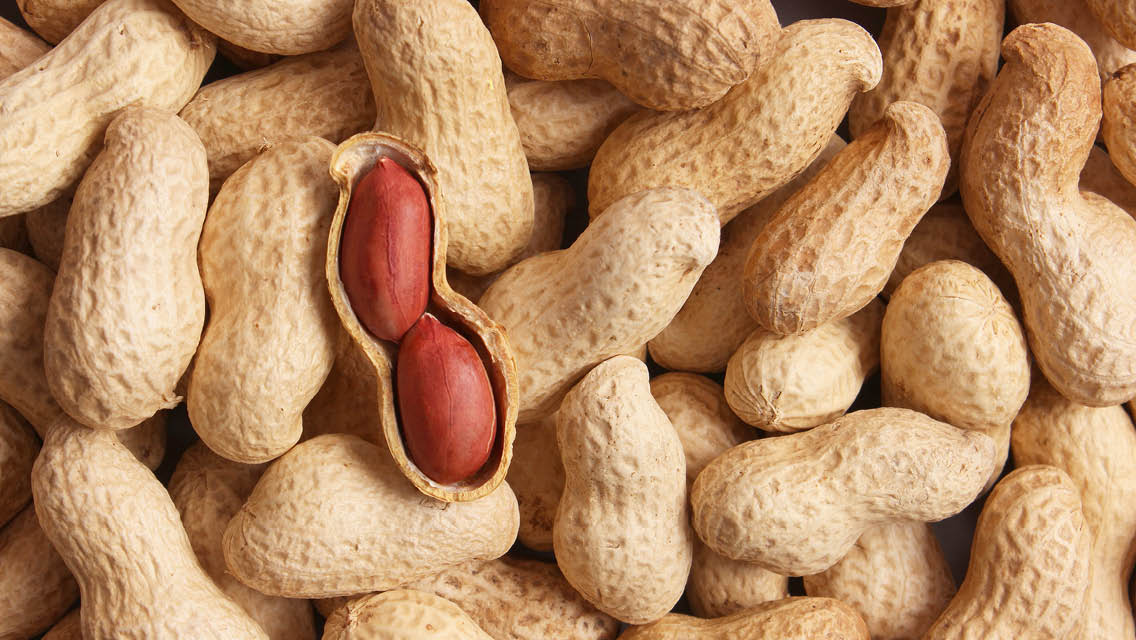Summertime! Juicy tomatoes, vibrant peppers, and shiny-skinned eggplants are piled high at the farmers’ market. You’re making your best potato-salad recipe and putting tomatoes in everything.
These foods all fall into the Solanaceae, or nightshade, family. While they are a healthy staple of many traditional diets, nightshades can pose problems for some people with inflammatory health conditions.
Specifically, eating nightshades may contribute to the inflammation, pain, and other symptoms associated with some autoimmune diseases, including rheumatoid arthritis, psoriatic arthritis, systemic lupus, and ankylosing spondylitis, as well as psoriasis and inflammatory bowel disease.
When problems appear, they may be triggered by toxins that belong to a group of nitrogen-containing compounds called alkaloids. Solanine is an alkaloid found in potatoes, eggplants, and peppers; tomatine is in tomatoes.
“For the vast majority of people, these are really terrific foods. They’re enjoyed by cultures around the world,” says Terry Wahls, MD, a clinical professor of medicine at the University of Iowa who specializes in autoimmunity. She notes that the alkaloid content in edible nightshades is small and well tolerated by most.
Still, she adds, people with joint-related autoimmunity might have negative reactions to compounds in these foods. These individuals may benefit from trying an elimination protocol to identify whether nightshades may be triggering their symptoms, and to give their immune systems a rest.
But there’s good news: If you have one of the autoimmune or gut conditions associated with nightshade sensitivity, these foods won’t necessarily cause you trouble. And if you do discover a sensitivity, you may not need to avoid them forever.
This guide offers more specifics about nightshade vegetables and fruits — their nutritional superpowers and their contradictory compounds — plus what to do next if you suspect a sensitivity.
The Alkaloid Enigma
Alkaloid compounds are found throughout the nightshade family; they’re part of the plants’ defense systems against insects, molds, and pests. Most of the roughly 2,500 nightshade species contain alkaloids and other compounds that are toxic to humans and other mammals if consumed in certain amounts.
Yet some nightshade alkaloids are used medicinally. The capsaicin in hot peppers, for instance, produces analgesic effects and is used in topical creams to soothe arthritic pain.
Research hasn’t definitively pinned down the mechanisms by which nightshades sometimes cause problems in some people. “But what you do find in the literature is that when some people remove them, they feel better,” says Susan Blum, MD, MPH, assistant clinical professor of preventive medicine at the Icahn School of Medicine at Mount Sinai and founder and director of Blum Center for Health in Rye Brook, N.Y.
If your immune system is healthy and you eat a wide variety of foods, toxic compounds including alkaloids don’t accumulate and don’t cause problems.
For example, in an observational study of people with psoriasis, researchers found that 52 percent of those who had reduced or stopped their nightshade consumption reported improvements in their skin. That said, the participants also eliminated other allergenic substances, such as gluten and dairy, so it’s difficult to isolate which of these changes produced the positive outcomes.
Importantly, nearly all the interventions used in the study aimed to heal the gut. “It looks like the mechanism by which alkaloids cause inflammation is via the gut,” Blum says. Some research suggests that these compounds disrupt cholesterol-containing membranes in the intestinal epithelium, the single-cell layer lining the intestines.
“All the foods we eat are a mixture of compounds that are helpful to us and things that are toxic to us,” notes Wahls. If your immune system is healthy and you eat a wide variety of foods, she adds, toxic compounds, including alkaloids, don’t accumulate and don’t cause problems.
But people whose immune systems are already dysregulated may be susceptible to the gut-irritating effects of alkaloids, says Blum. In predisposed individuals, nightshades may trigger joint pain or swelling; migraines, fatigue, or brain fog; skin issues, such as acne or hives; or GI issues, including diarrhea, gas, bloating, and nausea.
“When it comes to a patient with rheumatoid arthritis, I’m looking at what damaged the gut — was it antibiotics? Was it diet? Was it trauma, stress?” explains Blum. “It could be a tick bite when they were 13. I don’t think nightshades caused the problem, but they may be a secondary problem now.”
How to Check for Nightshade Sensitivity
If you suffer from autoimmune disease or persistent gut trouble, and you suspect nightshades might be an issue, begin by channeling the mindset of a detective.
“I think nightshade sensitivity represents a hypothesis, especially if someone has an inflammatory condition. It represents a potential trigger of gut distress,” says Minneapolis functional-medicine practitioner Gregory Plotnikoff, MD, MTS, FACP. “It’s contextual, but I like the idea of an elimination diet as a way of generating or testing a hypothesis.”
Your practitioner may recommend an elimination diet that temporarily removes nightshades as well as common trigger foods, such as dairy, gluten, and eggs. Depending on the type and severity of your symptoms, however, you may be asked to consider a lengthier or more involved protocol.
For those with an autoimmune disease affecting their joints, Wahls suggests a more stringent plan that cuts out sugar, gluten, dairy, eggs, grains, legumes, and soy, as well as nightshades.
Every body is different. But for a lot of people, the same thing that gives nightshades a bad reputation is what we should be celebrating about them.”
“I also am going to have the conversation to say that whatever diet we settle on, I want you to commit 100 percent for 100 days,” adds Wahls. If that’s not something patients are ready to do, she considers other ways to reduce their exposure to stressors in their environment.
The goal of most elimination diets is to remove the most troublesome irritants, allowing the immune system to calm down and the gut to heal. After a time, offending foods are systematically reintroduced to test ongoing sensitivity.
“There are specific temporary changes to the diet that may be beneficial — emphasis on ‘temporary,’” says Wahls. “If you have a successful reintroduction of a food, then you can decide if you want to try having it twice a week and see if that works.”
If you’ve eliminated most nightshades and noticed relief from autoimmune or gut symptoms, you might find that you can reintroduce certain nightshades — or enjoy them more often — if they are prepared in a specific way.
Pressure-cooking, for example, mitigates the effects of alkaloids and other irritating compounds, says Wahls. So, some people who don’t tolerate, say, raw tomatoes can enjoy them in sauces. (Keep readingfor more ideas.)
The Value of Variety
For most people, nightshade sensitivities do not last forever, so it’s important to reintroduce the foods into your diet when you can tolerate them. Not only are they delicious, but vibrant health means eating as diverse a diet as your system allows.
The problem, cautions Plotnikoff, is that some people will see a difference for a while and swear off a food for the long term. “What clinicians see all the time is people overly restricting when they don’t need to. Then they end up fearing food, and that takes the form of suffering.”
To avoid this scenario, return to the idea of elimination diets as experiments. “To really call on one’s inner scientist, one has to repeat things, reintroduce, and do it again,” he says. “This is where I recommend a good thought partner — an informed health professional, someone who can have a little bit more objectivity and bring additional insight.”
“My end goal when working with anybody is to get their diet to be as varied and enjoyable as possible,” adds Jesse Haas, CNS, LN, a functional nutritionist at Wellness Minneapolis.
And while there’s a threshold at which some people cannot tolerate the alkaloids in these foods, she explains, their ability to provoke the immune system is likely to actually benefit most people.
“They protect the plant, and they irritate us,” says Wahls. “In small doses, for most of us, it makes our cell physiology work far more efficiently.” The notion that stressing our system makes it healthier is called hormesis.
“Hormesis is how we get stronger through strength training. It’s why saunas are good for you, why cold showers are good for you. And you can get hormesis through plants by having a diverse diet,” explains Wahls. “We’d all be a lot better if we ate a variety of foods. The greater the diversity that you have, the more you can take advantage of the hormetic stress of little toxic compounds in the foods you eat.”
“Every body is different,” notes Haas. “But for a lot of people, the same thing that gives nightshades a bad reputation is what we should be celebrating about them.”
Making the Most of Nightshades
Nightshade vegetables and fruits are nutrient-dense foods, delivering important antioxidant and anti-inflammatory benefits. Learn why these foods can be great for you — and how you can mitigate their effects if they bother you.
Tomatoes
High in an antioxidant phytochemical called lycopene, tomatoes support your skin, eyes, and cardiovascular system and have anticancer properties. They’re also a bountiful source of the immune-system-supporting nutrients quercetin, lutein, and vitamins A, C, and E.
Optimize: The seeds and skins provide about 50 percent of tomatoes’ vitamin C and lycopene. Unless you’re dealing with specific autoimmune challenges, you can enjoy tomatoes fresh. Long-simmering tomato sauce can triple tomatoes’ lycopene content, making this one food that’s even more nutritious when cooked.
Mitigate: To reduce alkaloids that may irritate a sensitive immune system, remove the seeds and skin, and pressure-cook tomatoes. (Or simply cook them down.) Many people with autoimmunity find they can tolerate tomatoes this way.
Swap: If you’re avoiding tomatoes, try using a different acidic fruit in salads, such as grapefruit. For something sweet and colorful in salsas and sauces, consider beets. You can always add a little lemon or vinegar to provide acid where needed.
Peppers
Sweet bell peppers, as well as spicy cayenne peppers and other chili peppers, belong to the nightshade family. (The black-pepper plant is not a nightshade.) Some of the most nutrient-dense foods available, bell peppers deliver vitamins C, K, and B6, as well as folic acid and a host of phytochemicals. Capsaicin, the same compound in chili peppers that brings the heat, is an effective pain reliever and offers cardiovascular benefits.
Optimize: Enjoy peppers raw, roasted, or sautéed. Eating bell peppers raw preserves their vitamin C, but some research suggests that cooking may increase their antioxidant benefits.
Mitigate: To reduce alkaloid content, remove the seeds. Conventionally grown bell and hot peppers may contain concerning levels of organophosphate insecticides, according to the Environmental Working Group, so buy organic when you can.
Swap: Try carrots, cucumbers, and celery for other colorful, crunchy snacks. It’s hard to replicate the heat of spicy peppers, but you can swap in other bold ingredients, such as olives, vinegar, and citrus zest.
Potatoes
French fries aside, potatoes have a lot to offer in terms of nutrition. Note that sweet potatoes and yams are not nightshades. (For more, see “The Health Benefits of Eating Potatoes“.)
Optimize: When potatoes are cooked and allowed to cool, their starch transforms into resistant starch, a form of carbohydrate that nourishes the beneficial bacteria in your gut.
Mitigate: Buy organic whenever you can. Conventionally grown potatoes are sprayed with fungicides and pesticides and treated with sprout inhibitors during storage. You can eliminate up to 70 percent of toxic residue, and substantially reduce alkaloid content, by peeling them. (The alkaloids are concentrated in the skin.)
On that note, avoid eating potatoes that have started to turn green; that color is caused by increasing alkaloids in the skin, which increases their bitterness and can cause stomach upset.
Swap: It’s surprisingly easy to swap in other root veggies, such as sweet potatoes, turnips, parsnips, and celeriac, as well as cauliflower, in recipes and as sides.
Eggplants
Underappreciated in the United States, various eggplant varieties are staples in Asian and Mediterranean cuisines. They’re a great source of fiber, and the glossy purple skin contains cancer-fighting antioxidants called anthocyanins.
Optimize: Because the deeply hued skin of purple eggplant is such a rich source of nutrients, look for varieties with thin and tender skin; some varieties have unappetizing tougher skins.
Mitigate: Alkaloids in eggplants are what cause the bitter flavor; look for sweeter varieties such as Chinese, Japanese, or Thai.
Fresher eggplants are often less bitter as well. Salting, while masking the bitterness of eggplants, does not remove the alkaloids. Cooking may diminish solanine’s toxicity.
Swap: For a silken texture that resembles that of eggplant, try portobello mushrooms or thick-sliced zucchini or other summer squash.
Depending on the recipe, root vegetables, such as rutabagas, turnips, and celeriac can also make good substitutes for eggplant.
This article originally appeared as “Navigating Nightshades” in the July/August 2022 issue of Experience Life.





This Post Has 3 Comments
Great article and tips on tasty ways for people to find alternatives to nightshade foods. I plan on trying many of these suggestions.
Refreshingly consistent with other information I’ve received.
So even red, orange and yellow peppers have nightshades? I though only green peppers?